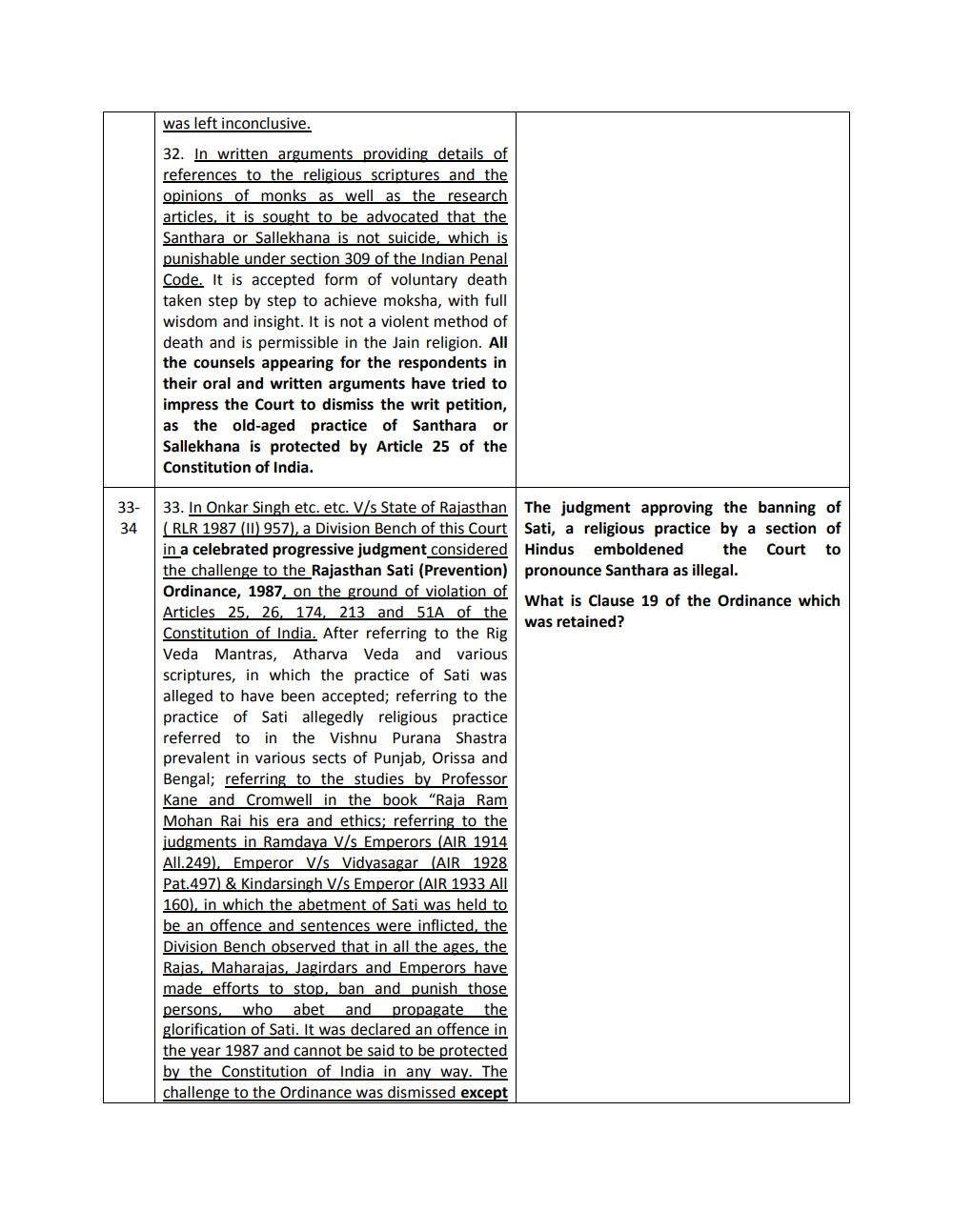________________
was left inconclusive.
32. In written arguments providing details of references to the religious scriptures and the opinions of monks as well as the research articles, it is sought to be advocated that the Santhara or Sallekhana is not suicide, which is punishable under section 309 of the Indian Penal Code. It is accepted form of voluntary death taken step by step to achieve moksha, with full wisdom and insight. It is not a violent method of death and is permissible in the Jain religion. All the counsels appearing for the respondents in their oral and written arguments have tried to impress the Court to dismiss the writ petition, as the old-aged practice of Santhara or Sallekhana is protected by Article 25 of the Constitution of India.
33. In Onkar Singh etc. etc. V/s State of Rajasthan The judgment approving the banning of (RLR 1987 (W) 957), a Division Bench of this Court Sati, a religious practice by a section of in a celebrated progressive judgment considered | Hindus emboldened the Court to the challenge to the Rajasthan Sati (Prevention) | pronounce Santhara as illegal. Ordinance, 1987, on the ground of violation of
What is Clause 19 of the Ordinance which Articles 25, 26, 174, 213 and 51A of the
was retained? Constitution of India. After referring to the Rig Veda Mantras, Atharva Veda and various scriptures, in which the practice of Sati was alleged to have been accepted; referring to the practice of Sati allegedly religious practice referred to in the Vishnu Purana Shastra prevalent in various sects of Punjab, Orissa and Bengal; referring to the studies by Professor Kane and Cromwell in the book "Raja Ram Mohan Rai his era and ethics; referring to the judgments in Ramdava V/s Emperors (AIR 1914 All.249). Emperor v/s Vidyasagar (AIR 1928 Pat.497) & Kindarsingh V/s Emperor (AIR 1933 All 160), in which the abetment of Sati was held to be an offence and sentences were inflicted, the Division Bench observed that in all the ages, the Rajas. Maharajas. Jagirdars and Emperors have made efforts to stop, ban and punish those persons who abet and propagate the glorification of Sati. It was declared an offence in the year 1987 and cannot be said to be protected by the Constitution of India in any way. The challenge to the Ordinance was dismissed except




